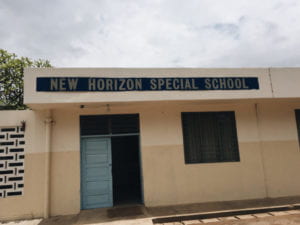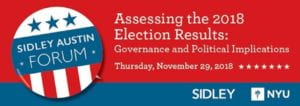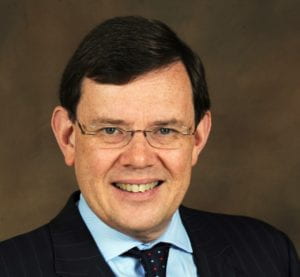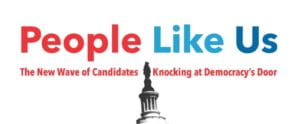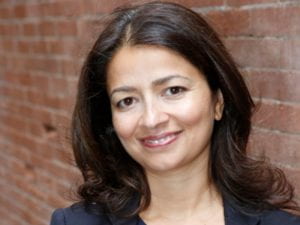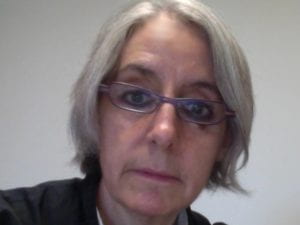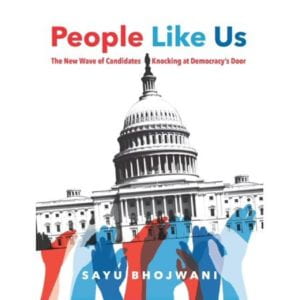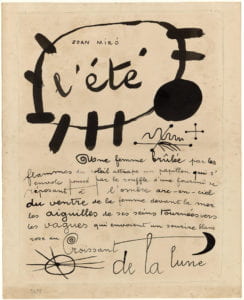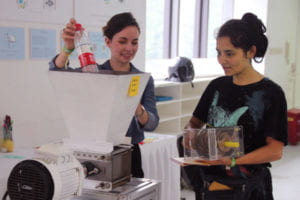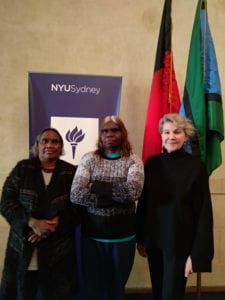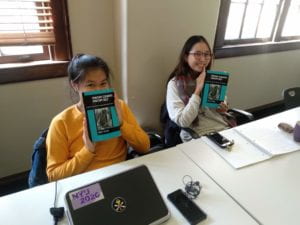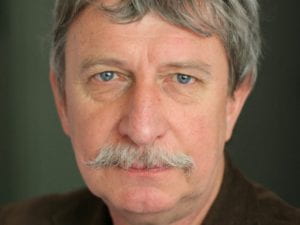 Tomas Vrba has been teaching literature at NYU Prague since 1999. He studied philosophy at Charles University, but after signing the human rights document Charter 77 in 1977, he had to take menial jobs until the Communist regime collapsed. Since then he has worked as a journalist, editor, and translator. Most recently he translated “Fascism: A Warning,” the latest book of his good friend Madeleine Albright, which is coming out in Czech next month. He also translated her earlier book, Prague Winter, and he is currently chairing the boards of the Forum 2000 Foundation and the Archa Theatre.
Tomas Vrba has been teaching literature at NYU Prague since 1999. He studied philosophy at Charles University, but after signing the human rights document Charter 77 in 1977, he had to take menial jobs until the Communist regime collapsed. Since then he has worked as a journalist, editor, and translator. Most recently he translated “Fascism: A Warning,” the latest book of his good friend Madeleine Albright, which is coming out in Czech next month. He also translated her earlier book, Prague Winter, and he is currently chairing the boards of the Forum 2000 Foundation and the Archa Theatre.
How did you start working at NYU Prague?
Jiri Pehe, NYU Prague Director and I knew each other from Forum 2000, and he asked me to teach the literature class, as I had been involved in publishing since 1990. At the time I was wrapping up my time as a journalist (I was editor in chief of the New Presence magazine). Since then, I’ve been teaching here as well for other international programs.
What classes did you initially teach?
Originally I taught two courses at NYU Prague- Modern European Literature and Contemporary Central and East European literature. We were a part of the Russian Slavic department, so we had to have East Europe in the title…. But from the beginning, we all agreed that it would be better to focus on the Central European content. After a few years we realized that it would make more sense to combine the courses. I try to show literature in a larger framework- something between cultural history and literature. I have always argued that a novel can be a good source of history. The last eighty years of Czechoslovak literature have been strongly connected to history and politics.
Do you think the students have changed since you started teaching at NYU Prague?
I can distinguish the two different generations. Today’s students could theoretically be children of the first students I taught. Of course they have different life experiences. Contemporary students read less, but their curiosity is the same as it was twenty years ago.
At the beginning of every semester, I ask the students which countries they have visited – twenty years ago, this was usually their first trip abroad. Now, virtually everyone has been somewhere. Of course you have a different experience when it’s your first time abroad.
What is one of your strongest memories from your class?
Some of my top moments in class have been during class debates. Czech students usually have read more, but they are shy to speak – here it’s the opposite.
I remember one student who wasn’t a big reader – actually he admitted that he had never read a novel – so I asked him to read one. He was studying hotel management and he wrote an excellent paper about I Served the King of England [Bohumil Hrabal’s novel set in a hotel] which he divided in two parts. One part was about the reader’s experience, and the other part was an analysis of the organization of the hotel in the novel – the student really understood and appreciated how well it was organized in the 1920s.
What do you think the students get out of coming to Prague?
I always ask the students to write about their Prague experiences- you can do that in a literature class – and I find out how they’ve discovered their individual Pragues. Most are soon fed up with the tourist industry, and they discover things outside of the center, in the suburbs where they live – Holesovice, Vinohrady. For many of them Prague is quite a romantic and mysterious experience.
Do you think students today are as interested in literature as they were 20 years ago?
Originally I had 10-15 students in my class. Now, sometimes I won’t teach for a semester because there isn’t enough interest. Generally, I am afraid that there is something dangerous happening globally. Courses in the humanities are more and more limited even at the top universities. Oxford and Cambridge have started offering management courses in recent years.
You have recently been involved in projects connected to the 40th anniversary of Charter 77 – curating exhibitions that have even toured to the USA. Do you find that young people are interested in topics relating to the former Communist regime?
Yes, I saw a lot of interest last year during the 40-year anniversary events connected to 1977 – and this year, I see a lot of interest in the 50-year anniversary of the Prague spring and the Soviet invasion in Prague. Ten years ago, my daughter said to me there’s nothing to protest against! Well, now there is a lot- and young people are active in elections, they are engaged. Ten years ago, the world looked all right – now, it’s gone crazy.
What has meant the most to you as an NYU Prague professor?
Last year I was invited to a conference at the Czech and Slovak museum in Cedar Rapids, Iowa, where I attended a panel of American professors of Czech language and literature. During the introductions, one of the scholars on the panel said that she was there because of Professor Vrba, who she studied with in Prague. That was nice.
The best recompense for me has always been looking at half a dozen, a dozen pairs of bright eyes. That’s still true – NYU students are very motivated.
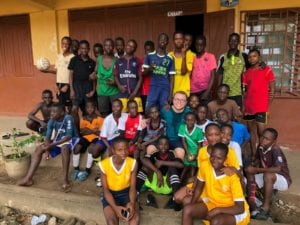 SPS sophomore Arik Rosenstein is a huge football (soccer) fan. In fact, he decided to study abroad in Accra because he wanted to understand how the sport serves communities here. When Arik arrived, he quickly worked with Victor Yeboah, NYU Accra’s community service director, to find a school in the neighborhood of Labone whose soccer team he could coach on Fridays. He balances this with an internship at the professional football team, Accra Hearts of Oak.
SPS sophomore Arik Rosenstein is a huge football (soccer) fan. In fact, he decided to study abroad in Accra because he wanted to understand how the sport serves communities here. When Arik arrived, he quickly worked with Victor Yeboah, NYU Accra’s community service director, to find a school in the neighborhood of Labone whose soccer team he could coach on Fridays. He balances this with an internship at the professional football team, Accra Hearts of Oak.